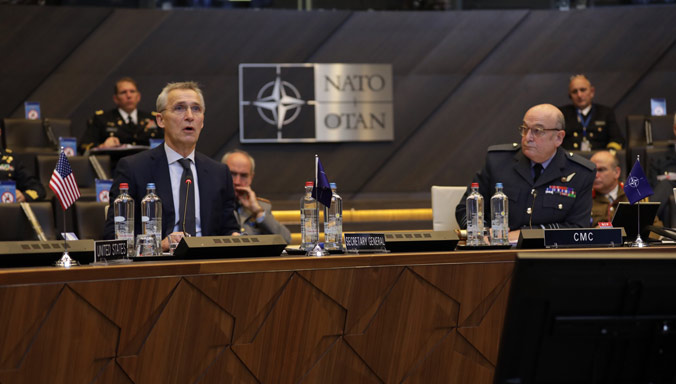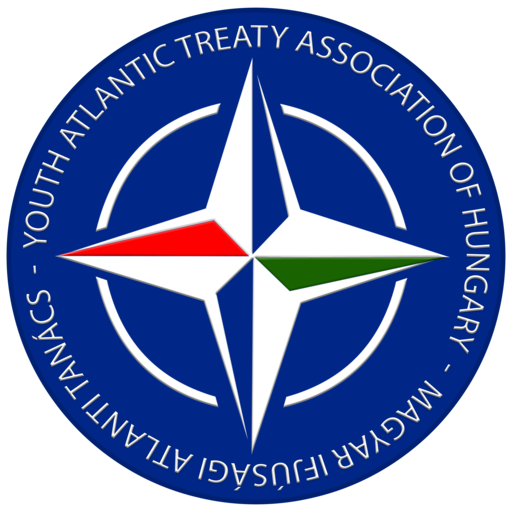
In the „NATO Social Update Briefing” of the Youth Atlantic Treaty Association of Hungary, we bring you the contemporary news of the Alliance every month.
NATO Secretary General Jens Stoltenberg addressed a virtual speech to members of the German Christian Social Union (CSU) on 6 January, praising the Allied armed forces for supporting civilian efforts to cope with the COVID-19 pandemic.
The Secretary General also stressed that 2021 is a great opportunity to re-energise transatlantic relations and further strengthen the bond between the European and North American continents. Mr. Stoltenberg also talked about the peace process in Afghanistan, which the Allies fully support. NATO Defence Ministers will assess the future of the Alliance’s mission in Afghanistan in February.
NATO must remain fit to face any challenge
On 27 January 2021, Secretary General Jens Stoltenberg told Allied Chiefs of Defence that NATO must remain fit to face any challenge amid a more unpredictable and competitive world. He said that despite the ongoing COVID-19 pandemic, NATO must focus on other present and future challenges as well. The Secretary General urged Allies to continue to increase defence spending, invest in modern capabilities and boost the readiness of armed forces to cope with global challenges such as Russia’s aggressive actions, terrorism, China’s rise, and work closely with democracies in the Asia-Pacific region in the future.
Technology
The newest episode of NATO Science tackled cyber defence gamification, the utilization of game-related elements in a practical context, a project of the Science and Technology Organization. The initial research of the years-long program searched for a game adequately modelling the virtue of cyber-security, but it turned out that cyber cannot be separated from the other operational domains. In line with the results, the research group opted for designing a multi-domain wargame to contribute to the training of military personnel, enhance NATO’s resilience and improve operational readiness.
In order to assist with explosive ordnance disposal (EOD), one of the most dangerous jobs in the world, NATO scientists at the University of Florence in Italy have developed the first generation of a new EOD robot, the UGO-1st. The project was launched in 2015, and scientists from multicultural backgrounds have recently started working on the follow-up DEMINING ROBOTS project. The UGO-1st is controlled with an easy human-computer interface, which allows for both military and civilian applications, and can be used to detect underground services or even cultural heritage items. In addition to technological development, NATO’s work with partner countries like Ukraine and the collaboration of young scientists is also an important aspect of the project.
Partnerships
Historical visit: strenghtening relations between Mauritania and NATO
On 14th January NATO Secretary General Jens Stoltenberg welcomed President Mohamed Ould Ghazouani president of Mauritania to NATO Headquarters to discuss security cooperation. The meeting is significant in the history of Atlantic Organization. It was the first time when one of the presidents of the Western-African countries visited the NATO Headquarters.
Stoltenberg underlined the leading role of the Islamic Republic in the regional security and the ambition against the terrorism, which is closely followed by NATO.
The Secretary General argued, the dialogue can lead to greater cooperation between NATO and Mauritania, including on border security, he added, how NATO can support the G5/Sahel in the future, for example through capacity building. Speaking about the situation in Libya, Mr. Stoltenberg urged all parties in the country and all members of the international community, to support the Berlin process.
Mauritania has been close NATO partner country since 1995. In recent years, the Alliance has supported Mauritania with constructing safe munition depots and training military personnel. NATO also helped to set up four crisis management centres in the country. NATO has also supported the development of Mauritania’s operational capabilities and crisis management in the fields of public health and civil protection through the establishment of two civil protection units.
Greetings to the new US President
Jeans Stoltenberg, on behalf of the NATO, congratulated Joe Biden on his inauguration as the 46th President of the United States and Vice President Kamala Harris. Following the inauguration of the President of the United States, a new chapter will begin for the Transatlantic Alliance. Close cooperation between North America and Europe is the foundation of security, and a strong NATO is good for both North America and Europe. Stable U.S. governance remains necessary as they work together to protect our democracies, our values, and the rules-based international order. NATO allies must work together to address the rise of China, the terrorist threat, including in Afghanistan and Iraq, and the security implications of a stronger Russia.
NATO Secretary General and the Georgian President discussed strengthening partnership
In a meeting at NATO Headquarters on 22 January 2021, NATO Secretary General Jens Stoltenberg thanked Georgian President Salome Zourabichvili for the close political partnership and strong practical cooperation it has with NATO. He expressed hope that this bond is further strengthened and encouraged Georgia to continue making progress with its reforms. The Secretary General thanked Georgia for being one of the largest troop contributors to NATO’s training mission in Afghanistan and said that despite the COVID-19, NATO and Georgia continue to strengthen their partnership. Mr. Stoltenberg also encouraged Georgia to continue making progress on the reforms as this would also bring the country closer to NATO membership. The Secretary General also emphasised that NATO continues to support Georgia’s territorial integrity and sovereignty against the Russian aggression.
Strengthening relations with Colombia
On 22 January 2021, Colombian Vice Foreign Minister for Multilateral Affairs Adriana Mejía, Vice Defence Minister for Strategy and Planning Jairo García, and NATO representatives decided to extend their bilateral cooperation. Columbia has already been a partner of NATO since 2017. Colombia and NATO have been cooperating in several fields such as intelligence-sharing, cyber defence, maritime security, the fight against corruption, and terrorism. Furthermore, the Columbian armed forces have had the opportunity to participate in NATO’s training and education. The new areas of cooperation potentially focus on resilience, interoperability and defence capability planning.
NATO Secretary General speaks with US President Biden
NATO Secretary General Jens Stoltenberg spoke to Joe Biden, and congratulated the President on his inauguration, which was a powerful demonstration of the strength of the United States’ democracy and the values. Mr Stoltenberg welcomed President Biden’s focus on rebuilding alliances.
They discussed the range of challenges that NATO Allies face, such as countering international terrorism, including in Afghanistan and Iraq, dealing with a more assertive Russia, and addressing the implications for our security of the rise of China. They also affirmed their intention to work together on other global challenges such as climate change and the pandemic. They stressed the need to maintain the momentum for increased defence spending, to keep our nations safe in an unpredictable world. They looked forward to continuing to work very closely together.
US Navy entered the Black Sea for patrolling and training
United States Navy destroyer USS Porter entered the Black Sea on 28 January to conduct routine maritime security operations and to train with Allies and partners in the region. Porter is the third US navy ship to enter the region in recent days. NATO spokesperson Oana Lungescu welcomed the deployment, saying: “The Black Sea is of strategic importance to NATO; therefore, the Alliance has increased its defensive presence in the region in response to Russia’s illegal and illegitimate annexation of Crimea and its ongoing military build-up in the Black Sea.”
